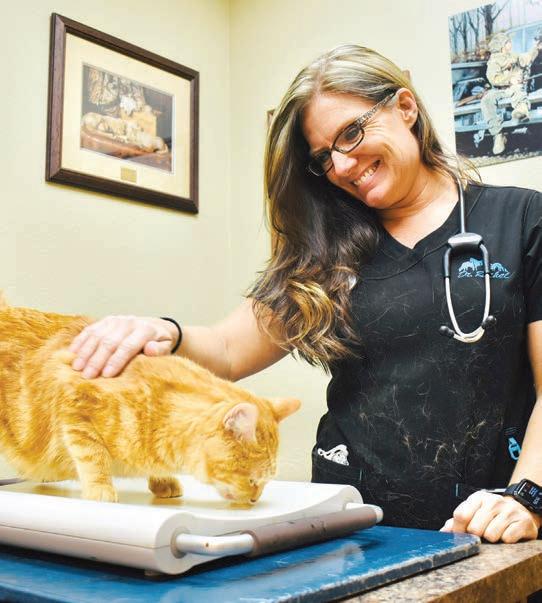
3 minute read
A diverse crop of entrepreneurs
from Impact 2021
Scott Marquardt, far left, joins graduates of the Elevate Community Business Academy in June. From left are Marquardt, senior vice president at Southwest Initiative Foundation; Abdilahi Omar, owner of Ain-U-Shams, Inc.; Abdusalaam Hirsi, Elevate Community Business Academy instructor; and Connie Schmoll, Elevate Community Business Academy instructor. Southwest Initiative Foundation
Region grows more than corn and beans: Economic developer finds region to be fertile grounds for diverse spectrum of entrepreneurs
BY TOM CHERVENY | West Central Tribune
HUTCHINSON — More than two decades of helping entrepreneurs get started in southwest Minnesota has taught Scott Marquardt many lessons, but perhaps none so important as these.
This place grows them, and they like it here.
How else to explain the Douglass brothers, Carl, Brian and Sean, and their commitment to Douglass Innovations in northern Kandiyohi County? They turn dreams into finished products on a 24-hour cycle taking advantage of advanced 3D printer technology.
“They could do this anywhere,” said Marquardt, pointing out their preference to stay.
Or, he said, take a look at Scott and Teresa Lamecker, who own and operate Lamecker’s General Store in Kerkhoven. They keep the Swift County community supplied not only with all of its hardware needs, but groceries as well. It requires long hours and hard work, but they continue to believe and invest in their hometown, he said.
Marquardt is a senior vice president with the Southwest Initiative Foundation. For the past 13 years he has worked helping entrepreneurs, and before that, for seven years in economic development with the city of Montevideo.
Since 1986, the Southwest Initiative Foundation has invested nearly $98 million in the region through loans and grants.
His role on the front lines of economic development makes Marquardt an optimist. For one, he points out that the region is a leader in terms of diversity. Communities such as Willmar, Worthington and Walnut Grove are leaders in the state when it comes to the numbers of businesses owned by people of color. He is seeing a continued trend of more Indigeneous people and people of color launching businesses of their own.
He said another special story is the region’s large number of women-owned businesses. This region has benefited greatly as home to a large number of female entrepreneurs, he said.
Marquardt credits the community banks and credit unions in the region with playing a very important role in making this a great place to launch a business.
“They are aggressive,” said Marquardt, adding that they are willing to take risks to help entrepreneurs. He said he has spoken to many of his cohorts around the country who tell him that banks don’t engage in business development as they do here.
Another factor setting this region apart is the willingness of its successful entrepreneurs to invest in the next generation. What’s especially important, he said, is that they are investing right back in the region. There are a number of communities, Willmar among them, where successful entrepreneurs are willing to risk their own funds in angel investment funds to spur local growth.
No less important is the willingness of economic development agencies throughout the region to work together. He said it may sound fluffy, but the truth is this: The economic development groups in the region know one another and put their missions of helping entrepreneurs in the forefront. There is no turf competition, he said.
While optimistic, Marquardt also points out that there are big challenges, no different than elsewhere. The need for child care and housing are the two top issues affecting the ability of businesses to attract workers and grow, he said.
The need for improved broadband access remains another top issue that must be addressed, he added.
All three of these issues have the attention of community leaders in the region, said Marquardt, which in itself is an important change. In the past, child care and housing were not considered economic development issues, but today they are getting the attention needed.
You may contact the author at tcherveny@wctrib.com

Rachel Bakeberg, owner of Appleton Veterinary Clinic, has worked with the Southwest Initiative Foundation’s business finance programs. She was featured in its Women Mean Business series earlier this year.
Southwest Initiative Foundation










